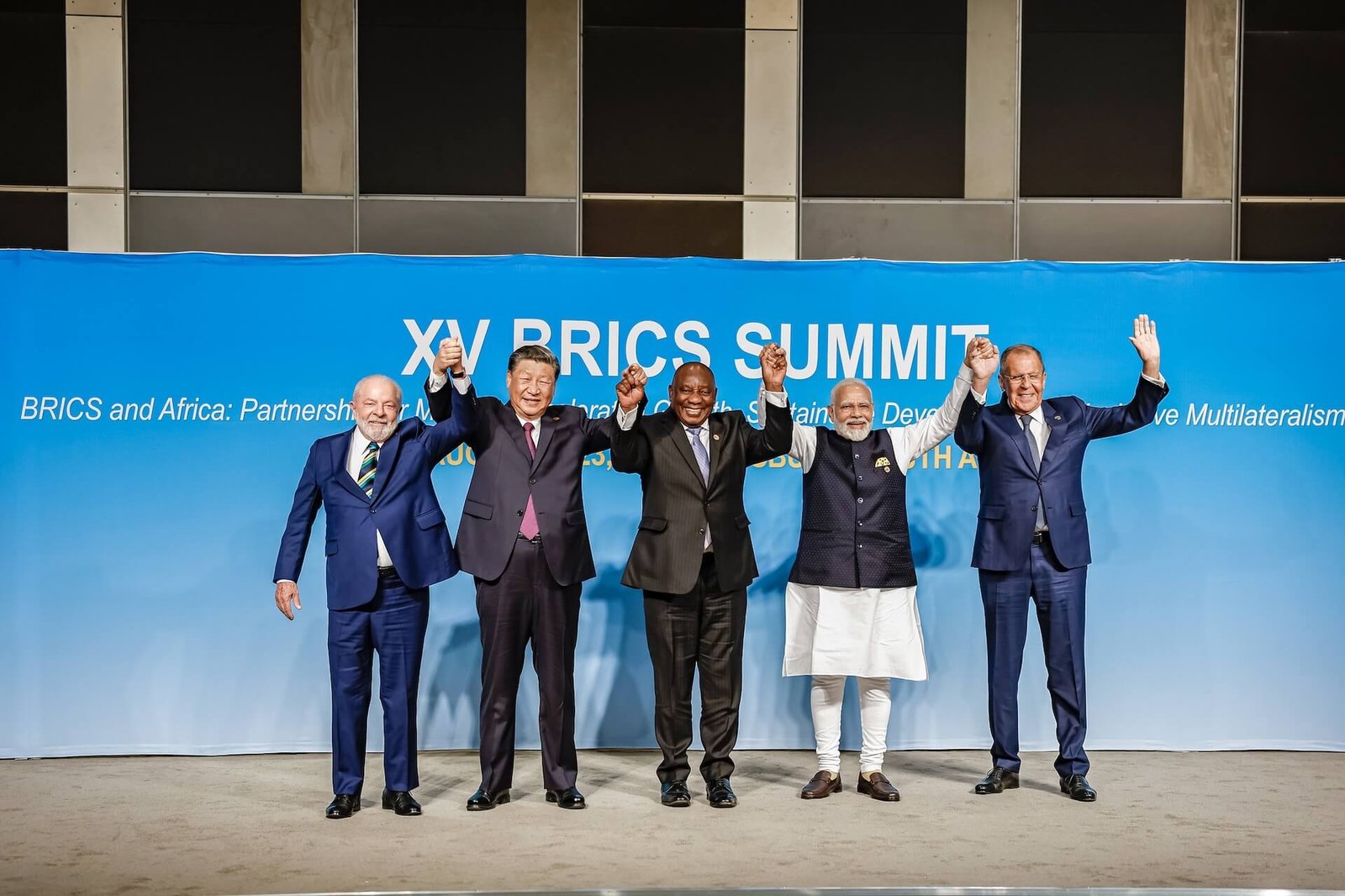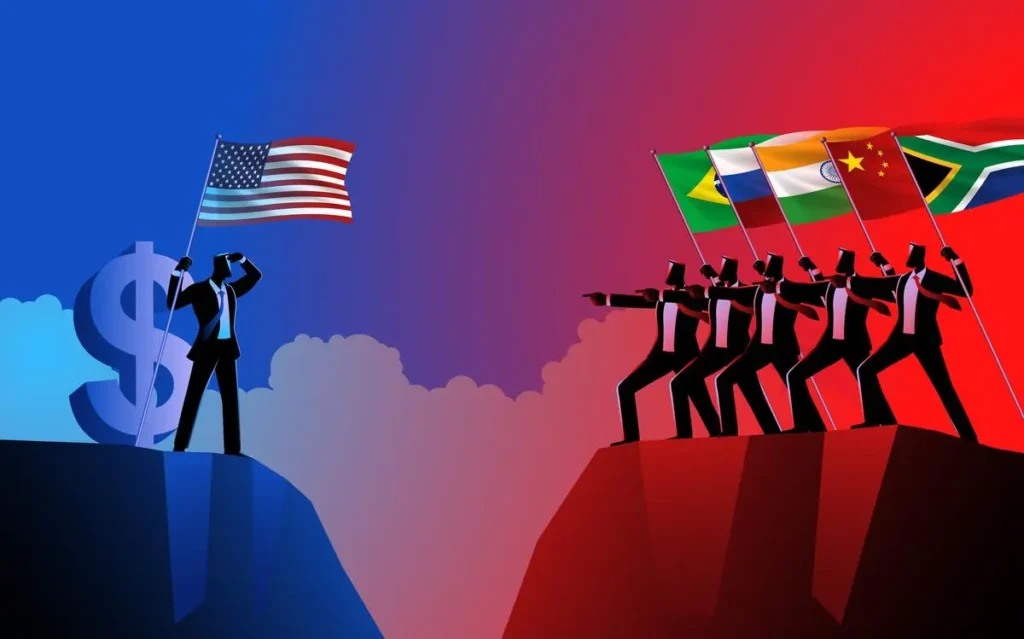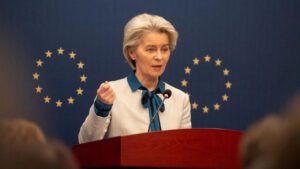On the agenda: A joint response to Trump’s tariffs and naval exercises.
As one of the leading alliances of the Global South, the BRICS is undertaking certain initiatives that might influence global power balances.
Virtual Summit on US Tariffs
The Brazilian President Lula da Silva convened BRICS leaders to a virtual meeting of heads of state. The meeting will be held on September 8.
The main topic: the tariffs imposed by US president Trump on two of the group’s members, Brazil and India.
Months ago, Trump had also threatened to impose additional tariffs on BRICS countries for their efforts to reduce dependence on the dollar by expanding trade in local currencies.
China and Brazil Strengthen Coordination
Leaders are expected to examine the issue in depth and develop a joint response from the group to the trade war unleashed by the United States.
In addition, a reform of the World Trade Organization will be discussed.
Kremlin spokesman Dmitry Peskov confirmed the participation of Russian President Vladimir Putin.
Indian Foreign Ministry spokesman Randhir Jaiswal also confirmed details of the meeting during a press conference in New Delhi.
According to Brazilian government sources, Lula seeks to mobilize the leaders of the major emerging economies in support of multilateralism.
Lula’s Position on Dollar Dependency
In early August, President Lula announced that he planned to call the leaders of the BRICS countries, starting with India and China, to discuss the possibility of a joint response to US tariffs.
He added that he did not intend to hold direct talks with Donald Trump, although the Brazilian Foreign Ministry sought relentlessly to initiate dialogue with the White House, which blocked it.
Previously, Lula assured that Brazil would not give up on the idea of creating an alternative currency to the dollar, an idea repeatedly raised by BRICS leaders to promote economic and trade relations in a climate of sovereignty and without being hostage to unilateral coercive measures imposed by the US and its allies using the dollar as a weapon of war.
Tariffs on Brazil and India
Brazil and India face high tariffs imposed by Washington.
- Various Brazilian exports to the US, including coffee, were subject to 50% tariffs.
- This coincided with Trump’s pressure against the Brazilian government and judicial system over the trial of former far-right leader Jair Bolsonaro for his alleged coup attempts.
At the same time, the Trump administration imposed an additional 25% tariff on Indian imports, citing India’s purchase of Russian oil.
India denounced the tariffs as “unfair and unreasonable,” declaring it would continue to buy Russian oil and criticized Washington’s double standards, since the US itself purchases Russian products.
India will be represented at the BRICS leaders’ virtual summit by its foreign minister.
BRICS Joint Naval Exercise
Unusual for the mostly economy-centered alliance, BRICS countries are holding joint naval exercises in South Africa.
Participating countries: Russia, China, South Africa, Ethiopia, Indonesia, and Iran.
Name of maneuvers: “Will of Peace”.

The maneuvers reflect BRICS’ interest in:
The exercises aim to:
- Exchange experiences
- Develop operational capabilities
- Demonstrate strategic coordination between major powers (Russia, China, Iran) and emerging countries (South Africa, Indonesia)
They started on Saturday to strengthen military cooperation between navies of the member states.
The maneuvers reflect BRICS’ interest in:
- Strengthening naval presence in international oceans
- Securing maritime shipping routes
- Demonstrating ability to act jointly against regional and international challenges
Captain Hassan Maghsoodloo, commander of the Iranian Navy’s First Naval District, told his country’s media:
“Given the economic relations and relations between the member countries of the BRICS summit, the combined maritime exercise ‘Will of Peace’ will be carried out with the participation of combat units from member countries, with South Africa as the host.”
Both steps—the virtual summit and the naval exercises—are possible steps in a general tendency that still needs to produce concrete results.
These efforts must convince Washington to respect the alliance.
Given the US president’s unilateral stance, BRICS countries may be forced to go further than initially planned.
Source: https://uwidata.com/38796-brics-taking-steps/
Abroad Africa AI Beijing Belt & Road BLCU BRICS China chinese CPC CSC Culture Economy education EU Guizhou Kültür Langauge movie Multipolarity Russia scholarship science Shanghai Sino Sino Turkish Sino Turkish Sino Turkish Sino Turkish Sino Turkish Studies Sino Turkish Studies Sino Turkish Studies Sino Turkish Studies space Syria Taiwan Tariff trump Turkiye Türkiye University USA Xinjiang ZJUT Çin





